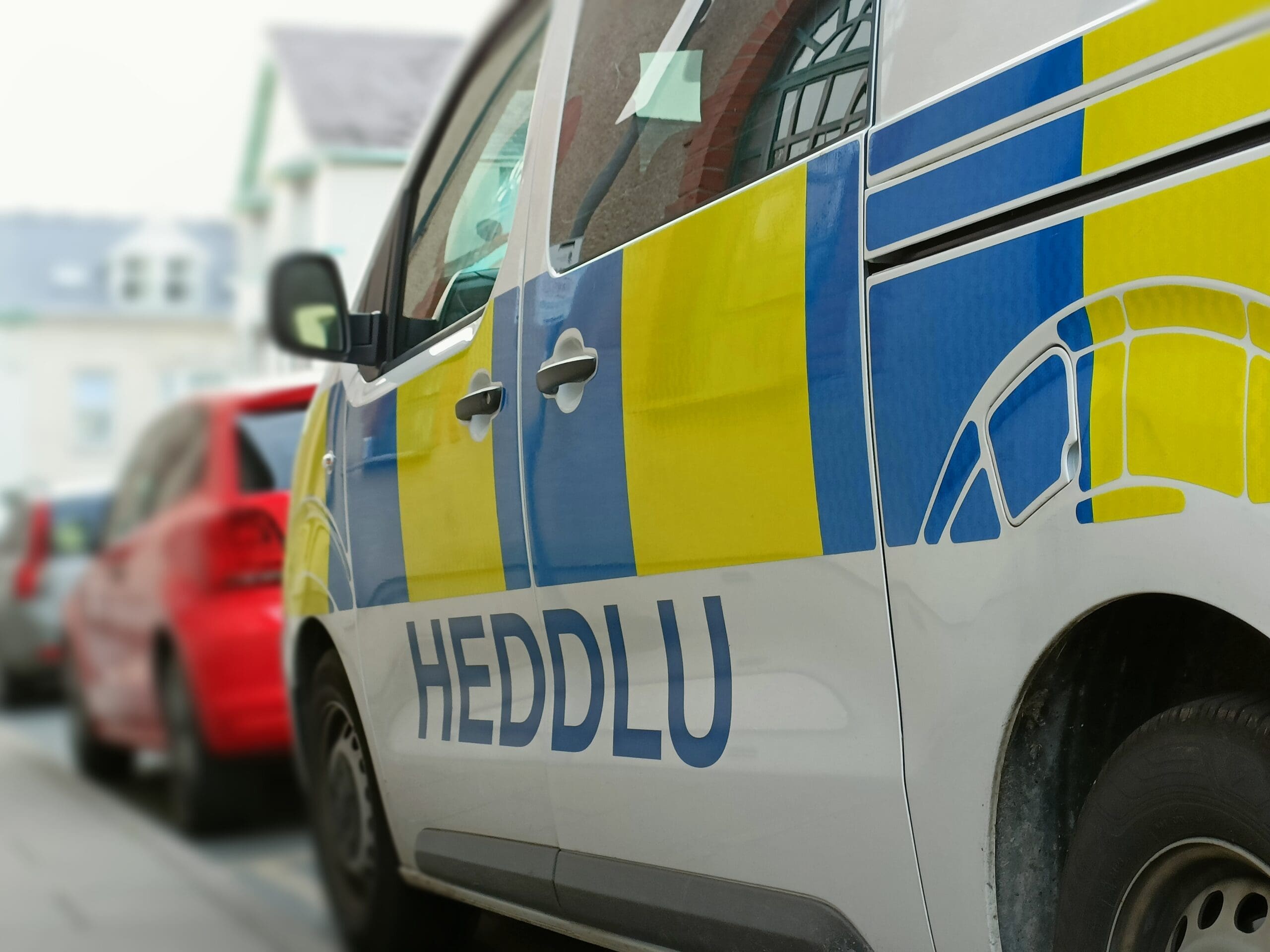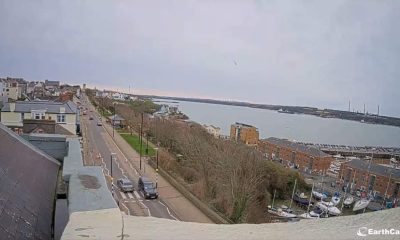News
Editor vows to fight to get case dropped
 THE EDITOR of The Pembrokeshire Herald is continuing his fight to get prosecution against him for naming a 17-year-old dropped. Thomas Sinclair, 37, of Hamilton Terrace, Miford Haven, is charged of one offence, contrary to Section 49 (1) and (3A) of the Children’s and Young Persons Act 1933, which is punishable by way of a fine.
THE EDITOR of The Pembrokeshire Herald is continuing his fight to get prosecution against him for naming a 17-year-old dropped. Thomas Sinclair, 37, of Hamilton Terrace, Miford Haven, is charged of one offence, contrary to Section 49 (1) and (3A) of the Children’s and Young Persons Act 1933, which is punishable by way of a fine.
In his latest representations to the CPS, the Editor affirmed that he considers the prosecution of this case conspicuously unfair and constitutes an “abuse of the Court’s process.”
Mr Sinclair says: “The agency which prosecuted the teenager in the original proceedings at Haverfordwest Magistrates’ Court have themselves released sufficient material to identify the defendant, but face no action from the Court or CPS.”
In the four page document, Mr Sinclair has again written to the CPS requesting they review the case against him, in particular to satisfy themselves whether or not the public interest test was satisfied.
The latest court hearing, reported in last week’s Herald, was adjourned on September 8 so that the prosecution could consider their position.
District Judge Simon Morgan commented that the CPS “should decide whether they were going to take a sensible and pragmatic approach to the case.”
Representations to the CPS were prepared by top Cardiff barrister Matthew Paul of Civitas Law.
Mr Sinclair has again pointed out that Milford Haven Port Authority, which prosecuted the youth in the Haverfordwest Magistrates’ Court, ‘committed a clear and unambiguous breach of the law when it published details which led to the youth’s inevitable identification in any event.
“To be clear, Mr Sinclair does not consider that it would be in any way in the public interest to prosecute the Port. However, it is in these circumstances impossible to make a meaningful distinction between the public interest in prosecuting the Port Authority, and taking action against the Herald.
“What is sauce for the goose is sauce for the gander, and the CPS should conclude that both offenders should be prosecuted, or neither.
“In Mr Sinclair’s submission, it is conspicuously unfair and an abuse of executive power to prosecute him for an offence which appears also to have been committed, with impunity, by the agency that prosecuted the youth in the first place.”
Speaking today (Sep 15) Mr Sinclair told The Herald that he emailed Alec Don, Chief Executive of the Port of Milford Haven, to reaffirm that, contrary to the impression fostered in a competitor, he did not wish to see the Port prosecuted.
The issue remains one of consistent application of the rules and procedural fairness.
Crime
Man who threw corrosive liquid at guest and fled abroad jailed

A BUSINESSMAN who threw a corrosive liquid into a guest’s face during a row at a spiritual retreat before fleeing the country has been jailed for 18 months.
Dean Mayze, aged 38, from Abercrave in Powys, admitted inflicting grievous bodily harm following the attack at his Hafan-y-Coed retreat in December 2022.
Swansea Crown Court heard the assault happened after an argument with guest Keifer Price, who had complained about the condition of his accommodation, including a lack of heating and washing facilities.
During the confrontation, Mayze produced a blue container and threw its contents upwards into the victim’s face.
The liquid — described as smelling like ammonia — entered Mr Price’s eyes, nose and mouth, leaving him in severe pain and struggling to breathe.
Medical evidence confirmed injuries consistent with a chemical burn to both eyes. He suffered abrasions, a corneal defect and the loss of the outer corneal layer in one eye, requiring significant treatment to prevent permanent sight loss. He has since recovered without lasting injury.
Fled across Europe
Following the attack, Mayze fled the UK, triggering an international search.
The court heard he travelled across several European countries, including Ireland, France, Italy, Croatia and Greece, before eventually being arrested in Romania in 2025.
Despite being on the run, he remained in regular contact with police by text and email, at one point telling officers he would not be returning to Wales.
His partner initially claimed responsibility for the assault and later received a suspended prison sentence after admitting perverting the course of justice.
Previous conviction
The court was told Mayze has a previous conviction for wounding involving a corrosive substance in Kent in 2013.
Defence barrister Andrew Taylor said his client had experienced harsh conditions while detained in Romania, including contracting scabies without treatment, and described him as remorseful.
However, Judge Geraint Walters said it was “pure luck” the victim had not suffered permanent injuries, describing the attack as a “particularly wicked way of inflicting violence”.
Sentence and order
Mayze, who appeared via video link from prison, had previously denied a more serious charge of causing grievous bodily harm with intent.
He was sentenced to 18 months’ imprisonment and made subject to a three-year restraining order.
Crime
Police appeal after man injured in St Davids incident

DYFED-POWYS POLICE are appealing for witnesses following an incident in St Davids which left one man injured.
The incident happened in Nun Street at around 11:10am on Tuesday, December 30. The injured man was taken to hospital for treatment.
Officers confirmed that a man has been arrested on suspicion of assault in connection with the incident.
Police are now asking anyone with information, dash cam footage, or CCTV that could assist the investigation to come forward.
Anyone with information is asked to contact Dyfed-Powys Police online at:
https://www.dyfed-powys.police.uk/contact/af/contact-us-beta/contact-us/
Alternatively, email [email protected], send a direct message via social media, or call 101 quoting reference DP20251230094.
Information can also be provided anonymously to Crimestoppers on 0800 555111 or via crimestoppers-uk.org.
Crime
Sexual assault allegation to be tried

Accused granted conditional bail
A SEXUAL assault allegation has been listed for trial following a hearing before magistrates.
David Fletcher, 45, of Chestnut Way, Mount Estate, Milford Haven, Pembrokeshire, appeared before magistrates in Llanelli on Thursday (Feb 12) charged with sexual assault, contrary to section 3 of the Sexual Offences Act 2003.
The charge alleges that on March 16, 2025, at Johnston, Pembrokeshire, he intentionally touched a woman aged 16 or over and that the touching was sexual when she did not consent and he did not reasonably believe that she was consenting.
The matter was adjourned for trial and Fletcher was remanded on conditional bail.
The trial is listed for March 9, 2026 at Haverfordwest Magistrates’ Court. Bail conditions prohibit him from entering a specified premises in Johnston, from contacting directly or indirectly the complainant or any prosecution witnesses, and from posting any information relating to the investigation on social media. The conditions were imposed to prevent further offending and to prevent interference with witnesses or obstruction of justice.
-

 Business1 day ago
Business1 day agoMS’s host business advice surgery following demand from Business Rates Online Forum
-

 Crime5 days ago
Crime5 days agoFour arrested in armed police operation across Pembroke Dock
-

 Community3 days ago
Community3 days agoHywel Dda hospital services decisions will be made next week
-

 Education5 days ago
Education5 days agoSchool in special measures after inspectors raise safeguarding and leadership concerns
-

 Community4 days ago
Community4 days agoSecond Milford Haven webcam launched after 1.3m views and US TV feature
-

 News5 days ago
News5 days agoClimber dies and two injured in St Govan’s Head fall
-

 Crime7 days ago
Crime7 days agoPendine man jailed for abducting and drugging teenage girl
-

 Health7 days ago
Health7 days agoWelsh pharmacies forced to sell medicines at a loss as funding model buckles




























Ben McAndo
September 15, 2016 at 9:54 pm
The Editor should face the music and stop whining. It is a basic error of judgement to “take a punt” and ignore reporting restrictions; it is a foolish gamble. He gambled; he surely knew it was a gamble (god help us if he didn’t realise that); he lost. He makes himself look even more inexperienced by trying to squirm away from the results of his own recklessness.